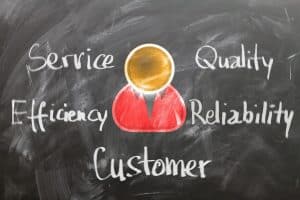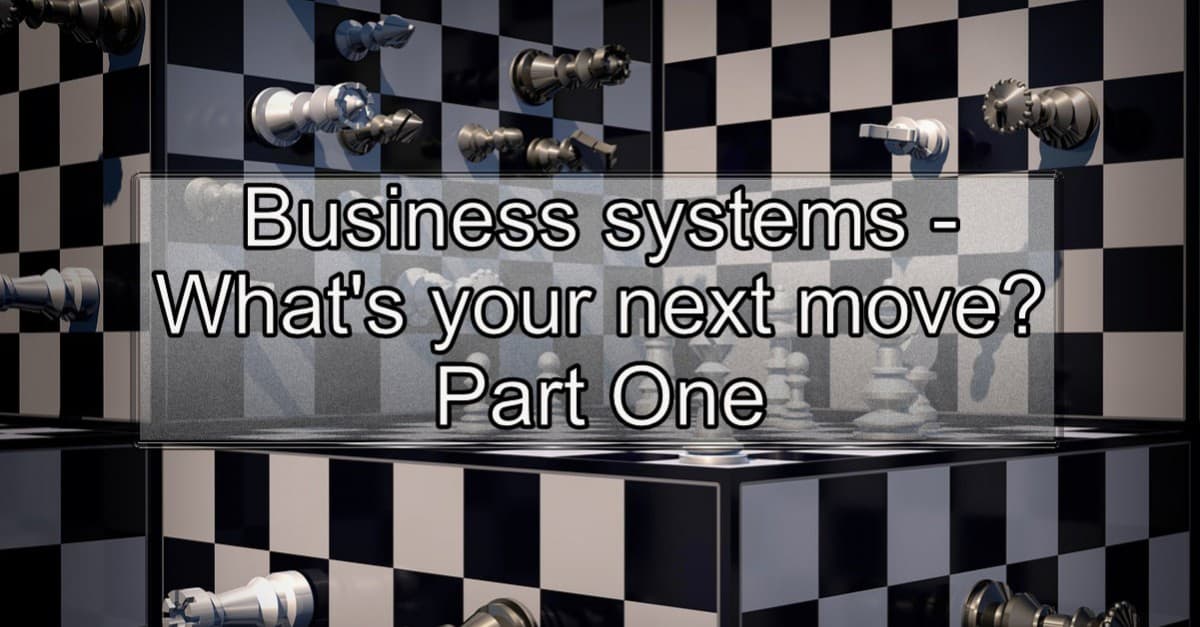What are business systems and why care? Ambitious to take the business to the next level? How could business systems help you make it happen?
In this two-part series we take an in-depth look at business systems. In this blog we look at what they are and why they matter. Our second blog looks at the “Benefits of business systems & processes”.
Your systems will be better if they’re designed to work together. Our guide, Business System: An Essential Guide to Growth, will help you design a robust system for better results.
Why make life complicated

If you’re running a business then you’ll be doing sales, marketing, creating and delivering products or services and providing customer care. Why make life more complicated than it has to be? If you’ve got the right people, and nothings changing too much, then no problem. But what happens if you do want to change. Why did you start a business in the first place? Has your business reached its peak or do you want to take it further? What happens if you do want to be more competitive, increase turnover, go into a new market or scale-up?
The confusion

Part of the confusion about “what are business systems”, is that some think that a business system could be a spreadsheet or a checklist. That’s what people see on the surface, so it’s a natural conclusion. Let’s imagine overnight replacing everybody in the business, including all the leaders, with a fresh set of people – would the business still work? Probably not, that’s because the people have know-how, techniques and experience that make it work. Having processes is a step further, yet you’d struggle without the knowledge, data and tools to make it all happen. If we return to the spreadsheet for a moment, in some cases, only one person in the business understands how it works – the person that wrote it!
What’s it all about?

Business systems have one function and that’s to create value. Good business systems create value quickly and efficiently. It could be for an internal “customer” or it could be for someone outside the business. That someone could be a customer. It could also be a shareholder, supplier or group that benefits from the business. I know that’s a broad view, yet that mirrors reality, after all you file returns and pay taxes, which is a value-add for the public purse.
Why care?
If you were the only show in town and customers had no choice. Or you weren’t too fussy about profit. Or you lived in a parallel world without red tape – now there’s a thought. Then you probably wouldn’t worry too much. The reality is that every business needs to be consistently good at something, make money, and follow the rules.
Let’s drill into being consistently good at something. What does that mean, and how do you achieve success? In short, it’s about making decisions that open up sound opportunities, and good old-fashioned execution. Simple – right! The execution bit is where your business systems come in.
Not all business systems are equal

Now before looking at improving what you’ve got, we need to know that not all business systems have equal value. We need to put most of the effort into the business systems that give advantage, a little less for those that provide strategic support, and we try and run the business necessities as efficiently and cost effectively as we can. How do we decide that? You might make an educated guess. However, it all comes back to why the business exists, it’s values, and perhaps most importantly, it’s strategy. The business systems are what helps you deliver the business strategy. Therefore, there is a close link between the strategy (what you decide to be good at) and your business systems (how you execute).
What are business systems?

In summary, business systems help you execute your strategy. You put the most effort into those that give you an advantage over competitors. Or put it another way, put the effort into the ones that deliver unique value to customers. Therefore, you need to figure out which ones give you an edge, and which ones are business necessity. The business system has a purpose and creates value. It’s more than a spreadsheet or process as it includes everything needed to get the job done.
If you’d like to explore the ideas in this article further or need help and advice, please contact Rogan at rhounsell@kr5consulting.com – to arrange an informal chat.
If you’ve found this blog interesting or useful, please ‘like’, ‘comment’ or ‘share’ so it can help others too.

